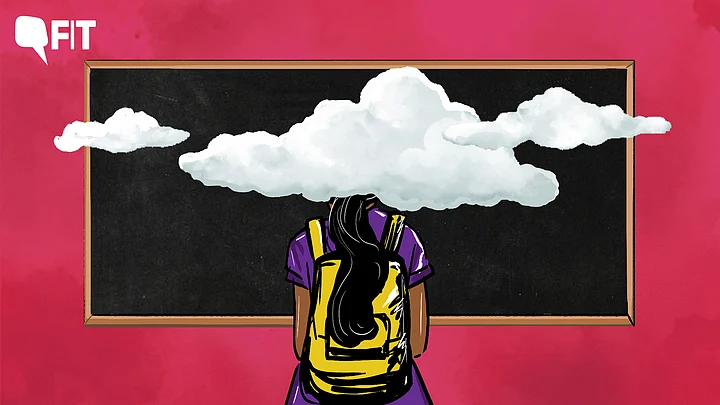I started menstruating at age 11. While my mother attempted to prepare me for the same, my peers were not there yet and my school was not prepared to handle a bleeding child who hadn't even given up on bloomers yet.
You see, when an 11-year-old child, who has never been able to use the word “vagina” without being chided, starts bleeding from there, it can be scary to put it very mildly.
This was nearly 2 decades ago, I was in a mainstream, popular school and I with all my privileges still remember the discomfort as if it happened yesterday.
Recent news tells us that things have not changed considerably.
An adolescent died by suicide in Mumbai, allegedly because of the 'stress' she experienced on getting her first period.
We do not know, in this particular case, the cause, the intensity of the pain she was experiencing or what was going through her mind. What we do know is that a child in a major metro city died because she was in pain both physically and mentally and she couldn’t receive the help she needed, in 2024.
Governmental Response and Policy Failures: Too Little, Too Late?
It is only in 2023 that a Supreme Court verdict drove the government to come up with a menstrual hygiene policy. Still in its draft form, the policy is rather progressive in its consideration of modern hygiene products and gender-neutral language.
Yet, it is too little, too late. Even as the country prepares for its general election this policy waits in its draft form.
It is not that the policy would bring about a drastic change on its own, no. It has several gaps and its very premise of keeping menstrual disorders and healthcare provisions conspicuously absent is telling.
Still, even menstrual hygiene is still a goal we are yet to achieve. NFHS 5 shows stark disparity among adolescent girls, regarding the usage of hygienic menstrual products based on their states, caste and educational status.
Is it surprising then, that girls still struggle to get help for menstrual discomfort?
In a country where underage marriage and pregnancy are still issues and maternal mortality is still a fight we’re fighting, it is easy to get lost in the quagmire of maternal health and forget that menstruating people matter even when they’re not bearing babies.
The horror stories of being dismissed by gynaecologists and other doctors resurface once in a while. This is for menstruators of all ages, mind you, what hope do children have? We must do better for people of all ages.
Empowering Through Education and Support
How many of us have studied and worked through the pain because we were asked to live with it? How many of us have gone undiagnosed because we either didn’t know any better or no one believed us when we described our symptoms?
A young girl lost her life in pain and distress, while others are told to sit through it. None of this occurs in isolation.
In a world that stigmatises everything ranging from sex education to the very natural process of menstruation it is important to see the entire web that enables unfortunate incidents like this to occur.
Let us start simple, learn about the body. If you are a parent or guardian reading this, be that safe space. But first, educate yourself. It is never too late to learn.
Learn and share that periods are normal and like any other physiological process they sometimes get messed up and you may require medical attention. It is not impure and you are not weak if you do not “endure”.
Excessive pain, on the other hand, is not normal during periods. It is okay to consult a professional if you aren’t sure that the duration, discomfort or flow feels different.
'You'll Be Fine': A Note to First-Time Menstruators
For first time menstruators, it can be overwhelming. You have nothing to compare it with and sensations are new. You will bleed for 2-8 days every month for a few decades. That’s okay. You are going to survive it.
It might hurt and if it hurts a lot you can visit a medical professional and they will help you understand and alleviate the pain.
You can choose the menstrual products you are most comfortable with and based on what is available to you.
If you are reading this, chances are you have access to the internet. You can access some resources here. You can discuss these with an older person you trust.
However, it is futile to pretend like this will solve everything.
It is important to remember that while knowledge is power, access remains a barrier.
Even as we look towards a menstrual hygiene policy sooner or later, we must work towards more comprehensive efforts towards menstrual health and eventually sexual health.
These efforts must be gender inclusive for it is the secrecy and shame which drives such incidents in the first place.
It’s April already, but here’s a resolution: we will learn the difference between a vulva and vagina and that none of these are bad words. Menstruation is okay and menstruating people require and deserve support. Pass it on.
(Dr Shivangi Shankar is a medical doctor and public health researcher. She writes about mental health, doctor-patient relationships, caregiver health, issues concerning healthcare workers, and public health in India. This is an opinion piece and the views expressed above are the author’s own. The Quint neither endorses nor is responsible for the same.)

